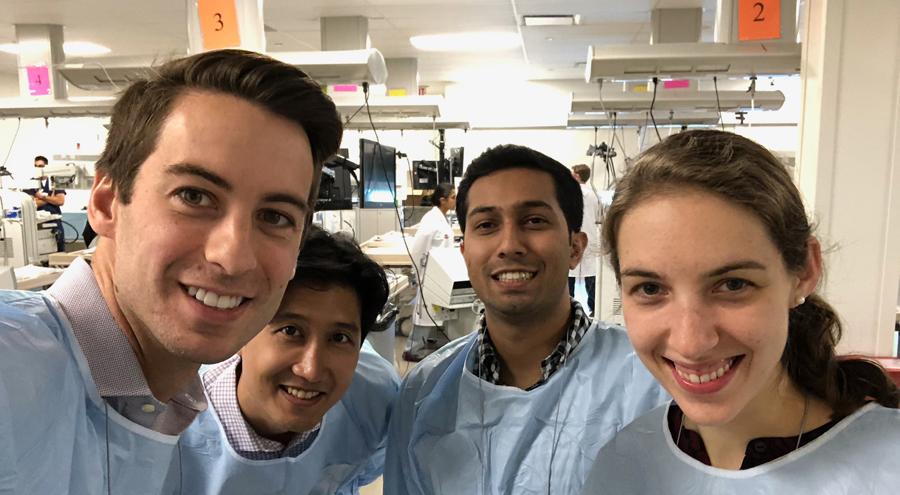Primarily in the first year, fellows gain clinical experience as consultants in gastroenterology on the inpatient service. They field consults covering a diverse spectrum of GI and Liver Diseases. Their work is directly supervised and reviewed by two GI teaching attending physicians during daily rounds, one of whom is a dedicated GI hospitalist.
The Center for Liver Disease and Transplantation provides the most advanced, yet personalized, care to individuals affected by liver disease. It is internationally renowned for its expertise and excellence in living donor transplantation and hepatobiliary surgery in patients of all ages. The fellows will have an opportunity to rotate on the inpatient primary liver service, consult service, and surgical transplant service. They work very closely with the transplant hepatologists managing both pre- and post-transplant patients.
Fellows work under the tutelage of attendings at the forefront of endoscopy. In addition to participating in standard endoscopic retrograde cholangiopancreatography, endoscopic ultrasound, and luminal stenting, they participate in cutting-edge techniques such as per oral endoscopic myotomy, endoluminal anti-reflux procedures, endoluminal bariatric procedures, therapeutic endoscopic ultrasound, endoscopic submucosal dissection, direct cholangioscopy among others.
Fellows have a half day of ambulatory continuity clinic every week. The fellows have their own panel of patients that they build from the first clinic, as they see initial consultations and continue follow-up of other patients. The full plethora of GI conditions managed under the supervision of a rotating panel of GI attendings. Fellows have the opportunity to participate in any sub-specialty outpatient clinic as well.
Each fellow will get direct supervision for techniques of EGD (including hemostatic measures, banding, dilation, and percutaneous endoscopic gastrostomy), flexible sigmoidoscopy, and colonoscopy (polypectomy and control of bleeding). Typically, by the end of the first year, fellows will have met the ACGME required numbers for EGD and colonoscopy. In the 2nd and 3rd years, fellows continue to have a weekly ambulatory endoscopy block to further hone their endoscopic skills.
Starting with the 1st year and increasingly in the 2nd and 3rd years, fellows will complete elective blocks in specialty areas in gastroenterology under the supervision of leading experts. Electives include inflammatory bowel disease, motility, small bowel, nutrition, hepatology, research.
